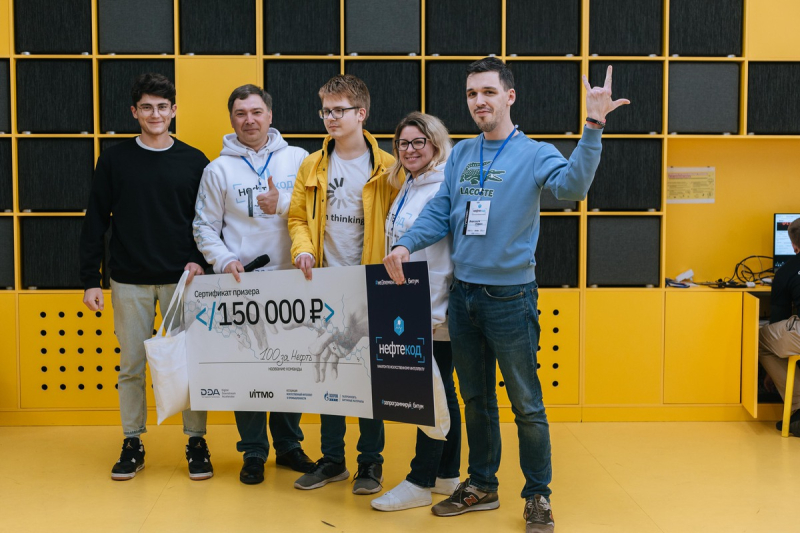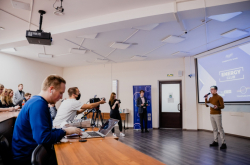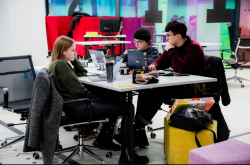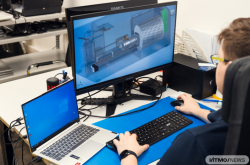At the hackathon, the representatives of Gazpromneft Bitumen Materials asked participants to solve a real-world business problem making use of the company's database of oil formulas, as well as the physical and mechanical properties of various material combinations, and the existing state standards in the field. The participants worked hard for three days to find a solution to the task.
As a result, the first place and a prize of 300,000 rubles was taken by the Mozhayka Team from A.F. Mozhaysky Military-Space Academy. The runner-up is ITMO’s 100ЗаНефть (100 a barrel – Ed.) that received 150,000 rubles and the bronze prize went to the local team crash_test that was awarded 50,000 rubles.
The hackathon welcomed not only university but also school students who have also demonstrated excellent results by making it to the top 10 performers as part of their teams. The jury board consisted of the representatives of Gazpromneft Bitumen Materials and the Artificial Intelligence in Industry Association, including Aleksei Shpilman, Nina Sukhova, Dmitry Zakharov, Andrey Matyskin, Sergey Bloshinsky, Olga Voitenko, Daniil Smirnov, Andrey Eremchenko, and Andrey Nechaev.
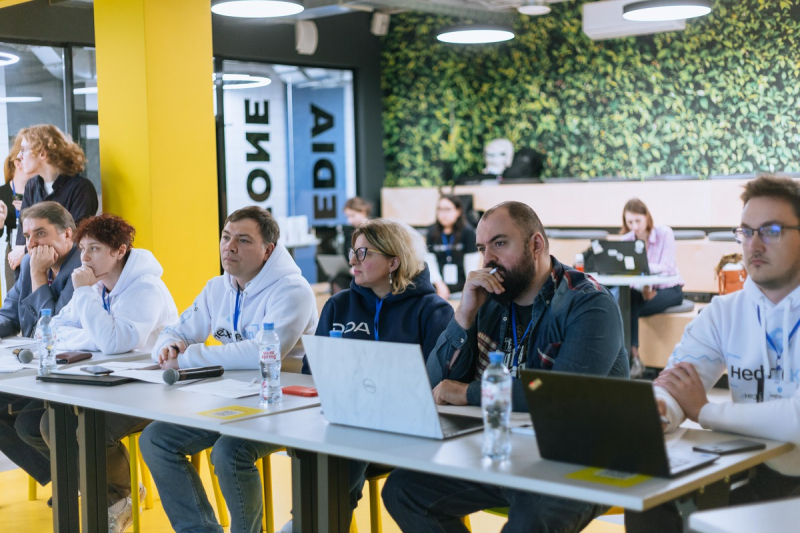
Neftekod at ITMO. Photo courtesy of Alena Kalinina / ITMO University
Based on the results of a leaderboard, which was updated every three hours, the jury selected the top 10 teams. At the same time, they highly appreciated the solutions offered by crash_test. Even though the team didn’t score enough to make it to the top, the experts decided to keep them in the competition, thus giving them another chance – as a result, the team finished third.
A particular attention was paid to the team’s presentation. The jury asked the members lots of questions about their backgrounds and future plans, as well as was curious about insights and difficulties they experienced along the way. The presentation and the solution were almost equally important and the teams had the chance to get extra points if their code was neat and they applied UI/UX solutions.
Mozhayka Team excelled in all areas and became the only team that pulled off a full-blown website for their solution. The jury, however, couldn’t reach a consensus on silver and bronze winners up until the final minutes of the voting. Nevertheless, they get more credit to 100ЗаНефть for their original and well-thought solution, as well as an in-depth understanding of the topic. Some experts named their model best technology-wise and praised its compliance with GOSTs and the specifics of compound properties.
“There were participants who were fully immersed in the topics. They have reviewed literature and studied GOSTs, academic papers, and even DSc theses. Some said that they would achieve greater results if the tasks included concrete physical and technical or physicochemical properties of compounds rather than their names. We’re already working towards digital systems for automated formula selection and are currently looking for ways to improve our model and increase its accuracy. We joined the hackathon to explore fresh perspectives and breathe new life into our project. We will certainly put the best models into test and even try to incorporate them,” shares Olga Voitenko, a jury member and the head of the department of bitumen and bitumen-derivative products at Gazpromneft Bitumen Materials.
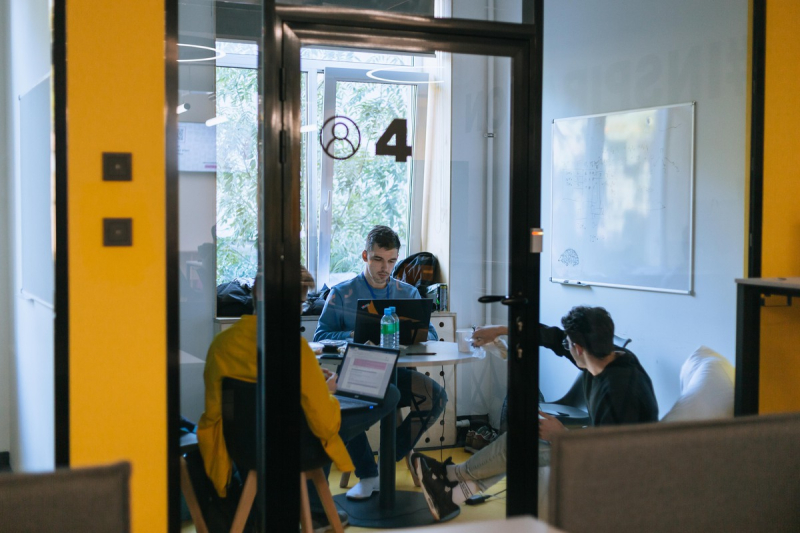
Neftekod at ITMO. Photo courtesy of Alena Kalinina / ITMO University
The participants of the hackathon admitted that the tasks seemed easier than they turned out in reality. Though creating a no-excitation transformer requires taking into account lots of hidden patterns and relationships, the biggest problem that the participants had to face is a handful of data (around 100 table rows, with 200-300+ being required minimum). Due to that, they couldn’t efficiently use traditional, tried-and-tested methods of molecular orbital theory (e.g., gradient boosting, neural networks, etc.). Whereas more common simple models, such as linear regression, could be easily retrained. The participants had to improvise and come up with new methods to solve the task.
“I’d like to note that today’s oil refining is taking big steps toward digitalization and I’m glad that our hackathons started off with bitumen. With its special atmosphere, the event brought together truly passionate people. The tasks were developed by the experts from Gazpromneft Bitumen Materials and focused on the creation of digital assistants to produce fast and high-quality polymer-bitumen binders. As the organizers of the event, we also paid special attention to feedback we received,” says Andrey Nechaev, a jury member and the deputy general director for Scientific and Technical Development at Gazpromneft Bitumen Materials.
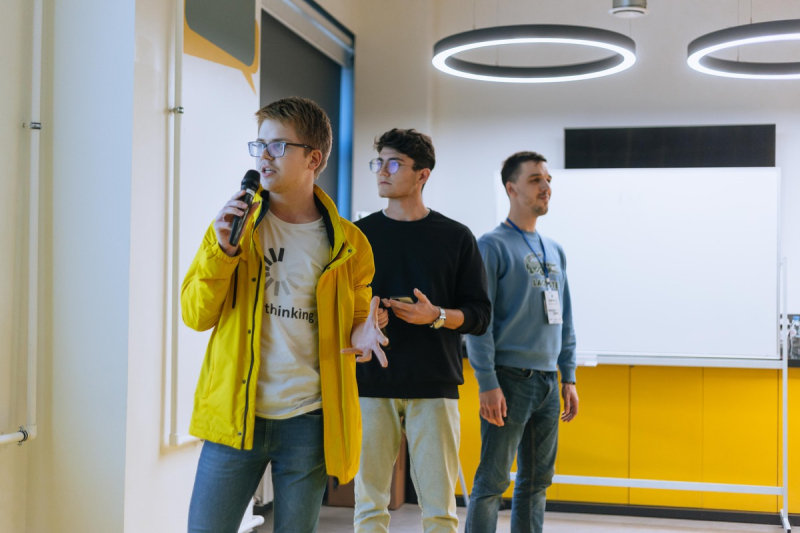
Neftekod at ITMO. Photo courtesy of Alena Kalinina / ITMO University
Apart from the winners, the experts praised other teams, too. Aleksei Shpilman, a supervisor at the Artificial Intelligence in Industry Association, invited the members of Seed_42 to do an internship at their company, while the representatives of Gazpromneft Bitumen Materials offered cooperation to the members of Цифровые нефтяники (Digital oilmen – Ed.). All the participants are invited to take a tour of the Lakhta Center and Gazprom Neft's Science and Technology Center.
The developers will continue to work on their projects outside the hackathon. For instance, they will be able to apply for the fall season of ITMO Accelerator, which has specifically extended its application period. Candidates who will make it through the selection process will learn to build business models, work in a team, determine target audiences, select markets for their products, and seek state, private, and fund grants.
Those who have missed the hackathon but can’t wait for spring to try their hand at solving cases from Gazprom Neft can register for GPN Intelligence Cup – a case championship for senior Bachelor’s and Master’s students with majors in IT and economics. The grand prize is an internship at Gazprom Neft in data quality, data science, BI development, data engineering, Java, and DevOps. The registration is open till October 31. The online round will be held on November 1-15. The most successful candidates will be invited for an interview.
ITMO.NEWS editorial team, based on material provided by the National Center for Cognitive Research
